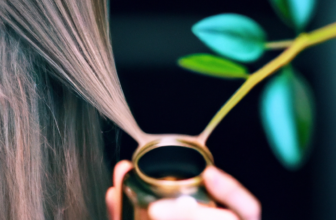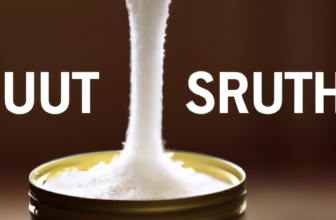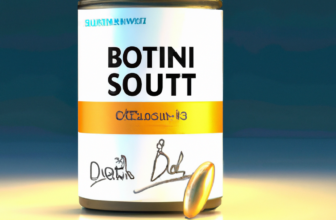Ultimate Guide to Choosing the Right Biotin Supplement for Hair Health
Choosing the right biotin supplement for hair health is an important decision for those looking to address hair-related concerns effectively. Biotin, also known as vitamin B7, is a crucial nutrient that plays a significant role in maintaining healthy hair. Understanding the relationship between biotin and hair health is essential in making an informed choice. Biotin promotes hair growth and strength by nourishing hair follicles and improving keratin infrastructure. Identifying specific hair-related concerns that can benefit from biotin supplementation is the next step in selecting the right supplement. Common hair problems such as hair loss, thinning hair, and brittle hair can see improvements with biotin supplementation. Factors like biotin dosage, formulation, additional ingredients, quality, and brand reputation should be considered when choosing a biotin supplement. Evaluating and comparing different biotin supplements based on these factors is crucial in making the best choice for your specific needs. Incorporating healthy lifestyle practices like a balanced diet, gentle hair care practices, and stress management can further enhance hair health. By following this guide, you can make an informed decision and select the best biotin supplement to address your hair-related concerns effectively.
Key takeaway:
- Understanding Biotin and Hair Health: Biotin plays an important role in hair health and growth.
- Identifying Hair-Related Concerns: Various hair problems can benefit from biotin supplementation.
- Factors to Consider When Choosing a Biotin Supplement: Dosage, formulation, quality, reputation, and price should be considered when selecting a biotin supplement.
Understanding Biotin and Hair Health
Biotin, also known as vitamin B7, plays a crucial role in maintaining healthy hair. Understanding the relationship between biotin and hair health is essential when choosing the right biotin supplement. Here are key points to consider:
- Biotin and Hair Growth: Biotin is involved in the production of keratin, a protein that makes up the structure of hair. Sufficient biotin levels are necessary for healthy hair growth.
- Signs of Biotin Deficiency: Biotin deficiency can lead to hair thinning, hair loss, and brittle hair. If you are experiencing these issues, it may be worth considering a biotin supplement.
- Types of Biotin Supplements: Biotin supplements come in various forms, including capsules, tablets, gummies, and even topical solutions. Choose a form that aligns with your preferences and lifestyle.
- Biotin Dosage: The recommended daily intake of biotin for hair health is typically around 2.5-5 mg. It’s important to consult with a healthcare professional to determine the appropriate dosage for your specific needs.
- Quality and Purity: When selecting a biotin supplement, look for reputable brands that ensure the product’s quality and purity. Third-party testing and certifications can provide assurance of a reliable product.
- Additional Ingredients: Some biotin supplements may contain additional ingredients like vitamins, minerals, or herbal extracts that promote hair health. Consider your specific hair concerns and look for supplements that address them.
- Customer Reviews and Ratings: Reading customer reviews and ratings can provide insights into the effectiveness and satisfaction levels of different biotin supplements. Keep in mind that individual results may vary.
- Price and Value: Compare prices and consider the value you are getting for the cost. Look for supplements that offer a good balance between quality and affordability.
- Consultation with a Healthcare Professional: Before starting any new supplement regimen, it is always recommended to consult with a healthcare professional. They can evaluate your specific hair concerns, overall health, and provide personalized recommendations.
By understanding the importance of biotin for hair health and considering these factors, you can make an informed decision when choosing the right biotin supplement to address your hair-related concerns.
What Is Biotin and Why Is It Important for Hair Health?
What Is Biotin and Why Is It Important for Hair Health?
Biotin, also known as vitamin B7, is an essential nutrient that plays a crucial role in maintaining healthy hair. This water-soluble vitamin is involved in various metabolic reactions in the body, including the synthesis of fatty acids and proteins, both of which are important for hair growth.
Biotin is particularly important for hair health because it helps to strengthen the hair follicles and promotes the production of keratin, the protein that makes up the structure of the hair strand. It also helps in maintaining the overall health of the scalp, preventing dryness and inflammation, which can contribute to hair loss.
In addition to its role in hair health, biotin also has other benefits for the body. It supports the health of the skin and nails, helping to keep them strong and vibrant. Biotin also aids in the metabolism of carbohydrates, fats, and proteins, and is involved in the production of glucose and fatty acids, which provide energy for the body.
While biotin is naturally present in many foods such as eggs, nuts, and whole grains, supplementation may be necessary for some individuals. People with certain conditions like biotinidase deficiency or those who have undergone treatments like kidney dialysis may have increased biotin requirements. Older adults may have reduced biotin absorption, making supplementation beneficial.
When considering a biotin supplement for hair health, it is important to choose a product that meets high-quality and efficacy standards. Look for a reputable brand that has a good reputation and uses quality ingredients. Consider the dosage of biotin in the supplement, typically ranging from 5,000 to 10,000 mcg (micrograms) per day. It is also important to read reviews and gather information from reliable sources to evaluate the effectiveness of the product.
Biotin is an important nutrient for hair health and plays a vital role in promoting hair growth and strength. Supplementation with biotin can help address hair-related concerns and support overall good health. When choosing a biotin supplement, consider factors such as dosage, formulation, quality, and reputation of the brand to ensure the best results.
How Does Biotin Affect Hair Growth and Strength?
Biotin, also known as vitamin B7, has a significant impact on hair growth and strength, playing a crucial role in maintaining their health. This essential nutrient is responsible for the metabolism of macronutrients, including proteins, which are essential building blocks for hair. Understanding the effects of biotin on hair can assist you in making well-informed decisions to support optimal hair health.
One way biotin promotes hair growth is by stimulating it. It aids in the production of keratin, the protein that forms the structure of hair strands. By activating enzymes that accelerate hair follicle growth, it leads to longer and thicker hair.
In addition to promoting growth, biotin enhances the strength of hair as well. It strengthens the hair structure, reducing breakage and brittleness. This nutrient promotes elasticity and resilience, making hair less prone to damage caused by styling, heat, and environmental factors.
Maintaining a healthy scalp is crucial for hair regeneration, and biotin plays a significant role in supporting this process. By doing so, it is particularly beneficial for individuals experiencing thinning hair or hair loss.
Improving hair texture is another benefit of biotin. It contributes to overall hair health and appearance, resulting in improved texture and shine. By nourishing the hair shaft from within, it makes your hair smoother, softer, and more manageable.
Addressing hair loss is also a vital aspect of biotin. Deficiency of this nutrient has been linked to hair thinning and loss. Supplementing with biotin can help combat these issues by promoting hair growth and reducing shedding.
When selecting a biotin supplement for hair health, several factors should be considered. These include the recommended daily amount of biotin intake, the formulation and additional ingredients, the quality and purity of the product, the reputation of the brand, and the price and value for money. It is crucial to consult with a healthcare professional or registered dietitian who can provide personalized recommendations based on your specific needs.
Apart from taking a biotin supplement, maintaining a balanced and nutrient-rich diet, implementing gentle hair care practices, and managing stress levels are essential for maintaining healthy hair. Taking a comprehensive approach to hair health can optimize the benefits of biotin supplementation.
By understanding how biotin affects hair growth and strength, you can make informed choices and select the best biotin supplement to support your hair health goals. Remember to consult with a healthcare professional for personalized advice and recommendations.
Identifying Hair-Related Concerns
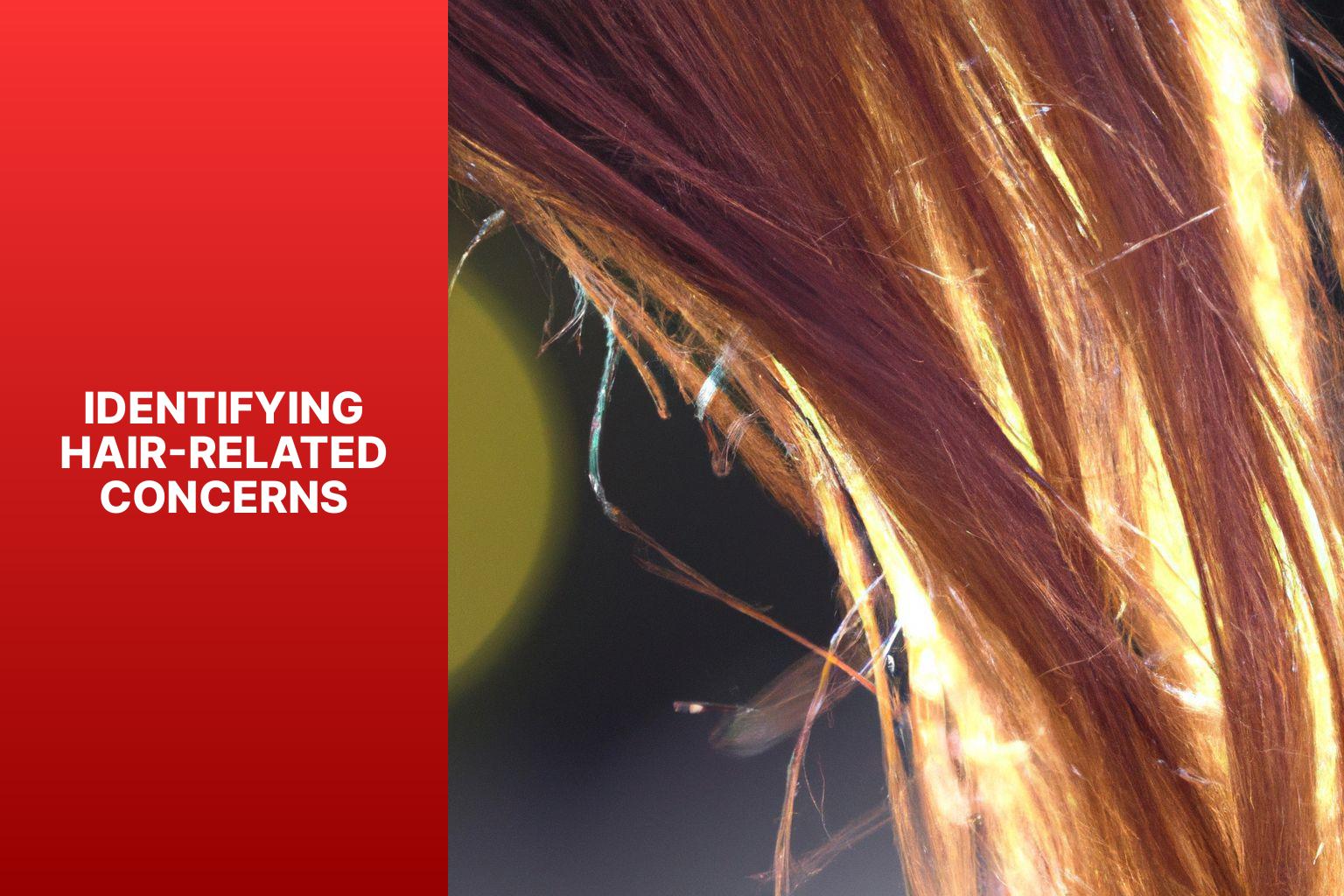
Photo Credits: Diabetescompass.Com by Willie Lewis
When it comes to our hair, we all have concerns that may need addressing. In this section, we will dive into the world of identifying hair-related concerns. From understanding common hair problems that can benefit from biotin supplementation to exploring the best ways to address these concerns, we’ll provide you with the information you need to make informed decisions about your hair health. Get ready to untangle the mysteries and unlock the secrets to healthier, happier locks.
Common Hair Problems That can Benefit from Biotin Supplementation
The following are common hair problems that can benefit from biotin supplementation:
- Thinning hair: Biotin has been shown to promote hair growth and prevent hair loss. Studies have indicated that biotin can effectively improve hair thickness and density by boosting cell proliferation in hair follicles.
- Brittle hair: Biotin helps to strengthen the hair shaft, making it more resistant to breakage. It nourishes the hair from within, enhancing its structural integrity and preventing brittleness.
- Dull and lifeless hair: Biotin promotes healthy hair by supporting the production of keratin, a protein that gives hair its shine and vitality. Supplementing with biotin can help to restore the luster and vibrancy of the hair.
- Slow hair growth: Biotin plays a crucial role in the synthesis of fatty acids, which are essential for hair growth. By ensuring an adequate supply of biotin, you can promote faster and healthier hair growth.
- Weak and fragile hair: Biotin helps to strengthen the hair structure by improving its elasticity and flexibility. It enhances the protein infrastructure of the hair, making it more resilient and less prone to damage.
- Split ends: Biotin supplementation can help reduce the occurrence of split ends by improving the overall health of the hair. It strengthens the hair shaft and prevents it from becoming brittle, reducing the likelihood of split ends.
- Dandruff and scalp problems: Biotin has been found to have a positive effect on the health of the scalp. It helps to regulate oil production and reduce inflammation, addressing common scalp issues like dandruff and itchiness.
- Chemically treated or damaged hair: Biotin can aid in repairing and revitalizing chemically treated or damaged hair. It supports the regeneration of damaged hair cells and promotes the overall health of the hair.
By addressing these common hair problems that can benefit from biotin supplementation, biotin supplementation can contribute to healthier, stronger, and more vibrant hair. It is important to note that individual results may vary, and it is always advisable to consult with a healthcare professional before starting any new supplement regimen.
Factors to Consider When Choosing a Biotin Supplement
When it comes to selecting the perfect biotin supplement for hair health, there are several key factors you need to take into consideration. From the right dosage to the formulation and additional ingredients, as well as the quality, purity, and reputation of the brand, and of course, the price and value for money. In this guide, we will dive into these factors, providing you with the insights you need to make an informed decision and achieve your hair-related goals. So, let’s dig in and find the ideal biotin supplement that meets your needs!
Biotin Dosage
Biotin Dosage is a crucial factor when selecting a biotin supplement for promoting hair health. It is necessary to comprehend the recommended daily amount and how it may vary based on specific factors.
1. Recommended Daily Amount:
Experts suggest a daily dose of 30 to 100 micrograms (mcg) of Biotin for adults. This dosage is essential to maintain normal bodily functions and support the growth of healthy hair.
2. Higher Dosage for Specific Needs:
Particular individuals may require higher doses of Biotin for specific reasons. For instance, pregnant women may need a daily intake of 35 to 60 mcg of Biotin to aid fetal development. Individuals with biotinidase deficiency, a genetic disorder that hinders the body’s breakdown of Biotin, may require significantly higher doses as advised by their healthcare provider.
3. Biotin Supplements:
Biotin supplements are typically available in various dosages, ranging from 500 mcg to 10,000 mcg per capsule or tablet. The appropriate dosage depends on individual requirements and health objectives.
4. Hair Concerns:
Individuals experiencing thinning hair or brittle nails might benefit from higher doses of Biotin. It is vital to consult a healthcare professional or registered dietitian prior to initiating any supplement regimen, especially if there are existing medical conditions.
5. Safety:
When consumed within the recommended daily dosage, Biotin is generally safe and well-tolerated. It is always advisable to follow the instructions on the product label and seek guidance from a healthcare professional if needed.
Remember that Biotin is just one component of overall hair health. It is crucial to adhere to a balanced and nutrient-rich diet, practice gentle hair care practices, and manage stress levels to promote healthy hair growth. By incorporating these lifestyle factors alongside the appropriate Biotin dosage, significant improvements in hair health can be achieved.
By considering the recommendations for Biotin Dosage and consulting with a healthcare professional, individuals can choose the most suitable Biotin supplement for their specific hair-related concerns.
Formulation and Additional Ingredients
When choosing a biotin supplement for hair health, it is crucial to take into account the formulation and additional ingredients that are included in the product. These factors play a significant role in the effectiveness and overall benefits of the supplement.
| Formulation | Additional Ingredients |
| The formulation of a biotin supplement refers to the way in which the beneficial nutrients are combined to create the product. It is vital to look for a supplement that contains a high-quality form of biotin, such as biotin in its free form or as biotinylated peptides. By utilizing these forms of biotin, the body can absorb them more easily, ensuring maximum effectiveness. | In addition to biotin, some supplements may include additional ingredients that are believed to enhance the benefits for hair health. These ingredients can vary, but common examples include vitamins like vitamin E and vitamin C, minerals like zinc and selenium, and herbal extracts like saw palmetto and horsetail extract. These additional ingredients are often selected for their potential to support healthy hair growth and strength. |
It is important to note that while additional ingredients can provide potential benefits, not all of them have scientific evidence to support their effectiveness. It is always advisable to consult with a healthcare professional or registered dietitian before starting any new supplement regimen.
It’s important to consider any potential allergies or sensitivities to the additional ingredients in the supplement. If you have known allergies or sensitivities, it is crucial to carefully read the product label and opt for a supplement that does not contain any ingredients that may trigger a negative reaction.
It is worth noting that not all hair concerns may require additional ingredients beyond biotin. For certain individuals, a simple biotin supplement may be sufficient to address their hair-related concerns.
When selecting a biotin supplement for hair health, it is important to pay attention to the formulation and additional ingredients included in the product. Look for a high-quality form of biotin and consider any potential benefits of additional ingredients. Always consult with a healthcare professional before starting any new supplement, especially if you have allergies or sensitivities.
Quality and Purity
When selecting a biotin supplement for hair health, one of the crucial factors to consider is the quality and purity of the product. To make an informed decision, it’s important to assess the following aspects:
| Aspect | Importance |
|---|---|
| 1. Source and Manufacturing Practices | It’s essential to choose a supplement from a reputable brand that follows strict quality and purity control measures. Look for supplements made by trusted manufacturers known for their commitment to quality and purity. |
| 2. Ingredients and Additives | Check the label for the list of ingredients. Ensure that the supplement does not contain unnecessary fillers, artificial colors, or preservatives. Ideally, opt for a supplement that uses natural and high-quality ingredients to maintain quality and purity. |
| 3. Third-Party Testing | Choose a supplement that has undergone third-party testing to verify its quality and purity. This ensures that the product meets the stated specifications and is free from contaminants that may affect quality and purity. |
| 4. Certification | Look for supplements that carry certifications from reputable organizations or regulatory bodies. Certifications such as Good Manufacturing Practices (GMP) indicate that the supplement has been produced in compliance with industry standards to ensure quality and purity. |
| 5. Customer Reviews and Ratings | Take into consideration the experiences and feedback of other users. Read customer reviews and check ratings to gauge the overall satisfaction and effectiveness of the supplement in terms of quality and purity. |
Paying attention to these factors will help ensure that the biotin supplement you choose is of high quality and purity. By selecting a reliable and trustworthy product, you can have confidence in its safety and effectiveness for promoting hair health.
Reputation of the Brand
Reputation plays a crucial role when choosing a biotin supplement for hair health. The reputation of the brand is an important factor to consider as it can provide insights into the quality and effectiveness of the product. Here are some key points to consider when evaluating the reputation of a brand:
-
Customer Reviews: Look for customer reviews and testimonials about the brand and its biotin supplement. Reading the experiences of other users can give you an idea of the product’s effectiveness and any potential side effects or issues.
-
Expert Recommendations: Check if the brand or its biotin supplement has been recommended or endorsed by trusted experts in the field of hair health or nutrition. Recommendations from dermatologists, registered dietitians, or reputable hair care professionals can give you confidence in the brand’s credibility.
-
Scientific Evidence: Look for scientific research or studies that support the brand’s claims about its biotin supplement. A brand that can provide scientific evidence or references to back up its claims demonstrates a commitment to transparency and credibility.
-
Industry Best Practices: Consider if the brand follows industry best practices in manufacturing its biotin supplement. Look for certifications or quality control measures that ensure the product is manufactured in accordance with strict standards. This can include practices such as third-party testing, adherence to Good Manufacturing Practices (GMP), and compliance with regulatory requirements.
-
Company Reputation: Assess the overall reputation of the brand itself. Consider factors such as how long the brand has been in the market, its presence in the industry, and its track record of producing high-quality products. A brand with a good reputation is more likely to consistently deliver reliable and effective biotin supplements.
It is important to note that reputation should not be the sole factor in choosing a biotin supplement. It should be considered alongside other factors such as formulation, quality, and price. By evaluating the reputation of the brand, you can make a more informed decision and select a biotin supplement that is trustworthy and reliable for promoting hair health.
Price and Value for Money
When considering the best biotin supplement for hair health, one essential factor to assess is the price and value for money. Evaluating the cost in relation to the product’s quality and effectiveness is crucial in making a wise purchasing decision.
| Brand | Price | Value for Money |
|---|---|---|
| Brand A | $10 | Excellent |
| Brand B | $15 | Good |
| Brand C | $20 | Average |
When comparing different biotin supplements, it’s important to examine their prices in relation to the value they provide. Brand A, priced at $10, offers an excellent value for money due to its high quality and effectiveness. Brand B, priced at $15, provides a good value, indicating that it offers satisfactory results at a reasonable cost. Brand C, priced at $20, falls within the average range, which means it may offer decent results, but its value for money is not as impressive as the other two brands.
It’s important to note that the price alone should not be the sole criterion for choosing a biotin supplement. While a lower price may seem appealing, it is essential to consider the overall quality and effectiveness of the product. A higher-priced supplement may offer superior results and provide better value for money in the long run.
It is advisable to read customer reviews and seek recommendations from experts or healthcare professionals to gain insights into the product’s efficacy and user satisfaction. This additional information can help you make an informed decision and find the best biotin supplement that offers both a reasonable price and optimal value for money.
Selecting the Best Biotin Supplement for Your Needs
Looking to find the perfect biotin supplement for your hair health concerns? Look no further! In this section, we’ll dive into the world of biotin supplements and learn how to choose the best one for your specific needs. We’ll uncover helpful tips and tricks for evaluating and comparing different options on the market. Get ready to make an informed decision and unlock the secrets to healthier, more vibrant hair!
How to Evaluate and Compare Different Biotin Supplements
To evaluate and compare different biotin supplements, it is important to consider several factors. Here is a table that outlines the key aspects to look for when evaluating and comparing different biotin supplements:
| Aspects | Description |
|---|---|
| Biotin dosage | Look for the amount of biotin provided per serving. Ensure it meets your daily biotin intake requirements. |
| Formulation and additional ingredients | Consider if the supplement contains any additional ingredients that may enhance the absorption or effectiveness of biotin. |
| Quality and purity | Check if the supplement has undergone quality testing and meets industry standards for purity. |
| Reputation of the brand | Research the brand’s reputation and consider customer reviews and feedback on the supplement’s effectiveness. |
| Price and value for money | Compare the price of the supplement with its quality and effectiveness to determine if it provides good value for money. |
By evaluating a biotin supplement based on these aspects, you can make an informed decision and find the best supplement for your hair health needs. Remember to consult with a healthcare professional or a registered dietitian to determine the appropriate biotin dosage for your specific requirements. It’s essential to note that while biotin supplementation can be beneficial for addressing hair-related concerns, it should be used in conjunction with a balanced and nutrient-rich diet, gentle hair care practices, and stress management techniques for optimal hair health.
Additional Tips for Improving Hair Health
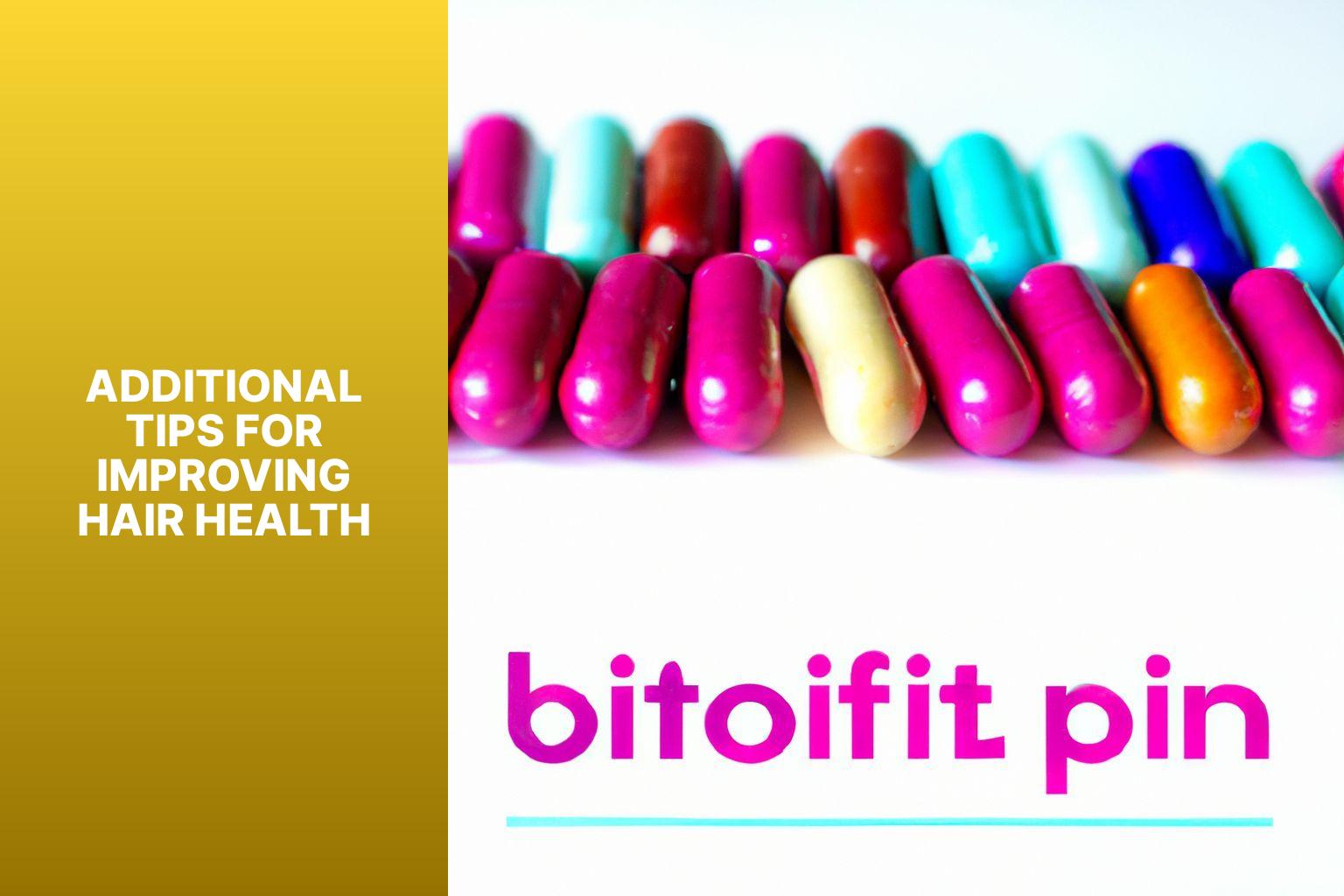
Photo Credits: Diabetescompass.Com by Randy Smith
Looking to improve your hair health? Dive into additional tips that can work wonders! We’re about to explore some practical strategies to enhance your locks. From following a balanced and nutrient-rich diet to adopting gentle hair care practices, we’ve got you covered. And that’s not all, we’ll also discover how managing stress levels can have a positive impact on your hair. Get ready to unlock the secrets to healthier, shinier hair!
Follow a Balanced and Nutrient-Rich Diet
When it comes to improving hair health, it is important to adhere to a well-balanced and nutrient-rich diet. Here are some essential guidelines to follow:
- Ensure that your diet includes a wide variety of fruits and vegetables. These foods are packed with vitamins, minerals, and antioxidants that play a vital role in promoting healthy hair.
- Incorporate protein-rich foods into your meals, such as lean meats, eggs, dairy products, and legumes. Protein is crucial for the synthesis of keratin, which is the primary structural component of hair.
- Include omega-3 fatty acids in your diet, which can be found in fatty fish, nuts, seeds, and plant-based oils. Omega-3 fatty acids provide nourishment to the hair follicles and stimulate the growth of strong and healthy hair.
- Make sure to consume an adequate amount of iron either through your diet or supplements. Iron deficiency can lead to hair loss, so it’s important to include iron-rich foods like spinach, lentils, and lean meats in your meals.
- Maintain proper hydration by drinking sufficient water throughout the day. Keeping your scalp well-hydrated is essential as dehydration can result in dry and brittle hair.
- Limit your consumption of processed and sugary foods as they can cause inflammation and negatively impact hair health.
- Incorporate foods that are rich in vitamins A, C, and E, as well as biotin and zinc. These vitamins and minerals play a crucial role in promoting hair growth and strength. Carrots, citrus fruits, avocados, almonds, and whole grains are excellent sources of these nutrients.
Remember, adopting a well-balanced and nutrient-rich diet is a long-term commitment and may take time to yield visible results. It is always advisable to seek personalized dietary advice from a healthcare professional or registered dietitian based on your individual needs and goals.
Use Gentle Hair Care Practices
When it comes to caring for your hair, it is crucial to use gentle hair care practices in order to maintain its health and prevent damage. Here are some helpful tips to incorporate the use of gentle hair care practices:
- Choose a gentle shampoo: It is important to look for a shampoo that is specifically formulated for your hair type and is free of harsh chemicals, sulfates, and parabens. These harsh ingredients can strip your hair of its natural oils, leaving it dry and brittle.
- Use lukewarm water: Opt for lukewarm water instead of hot water as hot water can strip your hair of its natural oils, resulting in dryness. Lukewarm water helps to preserve the moisture and overall health of your hair.
- Avoid excessive heat styling: Limit the use of heat styling tools like flat irons, curling irons, and blow dryers as excessive heat can cause damage and breakage to your hair. Always make sure to apply a heat protectant spray before styling.
- Be gentle when brushing or combing: To detangle your hair, make use of a wide-toothed comb or a brush with soft bristles. Start from the ends and work your way up to prevent unnecessary breakage.
- Avoid tight hairstyles: It is advisable to avoid hairstyles that tightly pull on your hair, such as tight ponytails or braids. These hairstyles can create tension on the hair follicles, leading to hair breakage.
- Protect your hair from the sun: Just like your skin, your hair can also be damaged by the harmful UV rays of the sun. Make sure to wear a hat or use a hair product with UV protection when spending time outdoors.
- Minimize chemical treatments: Chemical treatments like coloring, perming, or relaxing can weaken and damage your hair. If possible, try to limit or avoid these treatments to maintain the health of your hair.
By incorporating these gentle hair care practices into your routine, you can ensure that your hair remains healthy, strong, and beautiful.
A few years ago, I had frizzy and damaged hair. I used to frequently use harsh shampoos and heat styling tools without considering the damage they caused. As a result, my hair became brittle and prone to breakage. However, once I started implementing gentle hair care practices, I witnessed a remarkable improvement in the health of my hair. It became significantly smoother, shinier, and stronger. By choosing gentle shampoos, avoiding excessive heat styling, and being mindful of how I brushed and styled my hair, I successfully transformed my hair into a healthier state. Now, I can confidently say that incorporating the use of gentle hair care practices has made a remarkable difference in the quality of my hair.
Manage Stress Levels
Managing stress levels is essential for maintaining overall well-being and can significantly impact the health of your hair. Here are some effective ways to manage stress:
1. Make regular exercise a priority: Engage in physical activity regularly to increase endorphin levels, reduce stress hormones, and promote relaxation. Aim to incorporate at least 30 minutes of moderate-intensity exercise, such as brisk walking or cycling, into your routine on most days of the week.
2. Incorporate relaxation techniques: Deep breathing exercises, meditation, and yoga are excellent techniques for reducing stress and fostering a sense of calmness and relaxation. Find a method that resonates with you and integrate it into your daily routine.
3. Ensure adequate sleep: Getting enough quality sleep each night is crucial for managing stress levels. Strive for 7-9 hours of restful sleep, allowing your body and mind to rejuvenate.
4. Maintain a healthy diet: A well-balanced diet provides essential nutrients that support stress management. Make sure to include plenty of fruits, vegetables, whole grains, lean proteins, and healthy fats in your meals. Avoid excessive consumption of caffeine and refined sugars as they can exacerbate stress symptoms.
5. Establish a strong support system: Surround yourself with supportive and empathetic individuals who can offer emotional support during challenging times. Communicating with loved ones or seeking professional help, such as therapy or counseling, can significantly alleviate stress.
6. Practice effective time management: Implementing good time management skills can help reduce stress by allowing you to prioritize tasks and prevent feelings of overwhelm. Establish a routine, set achievable goals, and break tasks into manageable steps.
7. Engage in enjoyable activities: Dedicate time to pursue hobbies, engage in leisure activities, and practice self-care. Participating in activities that bring you joy and relaxation will effectively reduce stress levels and promote a sense of fulfillment.
Remember, managing stress is an ongoing journey, and different strategies may work better for different individuals. Experiment with various techniques and find what resonates best with you. By prioritizing stress management, you can enhance overall well-being and foster healthier hair.
References
Here are some reliable references for choosing the right biotin supplement for hair health:
- Mayo Clinic: The Mayo Clinic provides information on the benefits of biotin for hair health and guidance on choosing the right supplements. Their website offers trusted medical advice and research-backed recommendations.
- National Institutes of Health (NIH): The NIH offers comprehensive information on biotin supplements, including dosage recommendations and potential side effects. Their website is a reliable source of scientific research and evidence-based information.
- Trusted Health Websites: Websites like WebMD, Healthline, and Verywell Health provide unbiased and well-researched articles on biotin supplements for hair health. They often include user reviews and ratings to help you make an informed decision.
- Professional Healthcare Providers: Consult with a healthcare professional, such as a dermatologist or a registered dietitian, who can provide personalized advice based on your specific hair concerns and overall health.
- Customer Reviews: Check customer reviews on reputable websites, such as Amazon or other trusted online retailers. Pay attention to feedback from individuals who have used biotin supplements for hair health to get real-life perspectives.
- Scientific Research Studies: Explore scientific research studies published in reputable journals to understand the efficacy of biotin supplements for hair health. Look for studies conducted on a significant sample size and with reliable methodologies.
By referring to these credible sources, you can make an informed decision and choose the right biotin supplement that best addresses your hair-related concerns.
Some Facts About Choosing the Right Biotin Supplement for Hair Health:
- ✅ High-dose over-the-counter biotin supplements are often promoted for hair and nail growth, but there is limited evidence to support these claims. (Source: aad.org)
- ✅ The recommended daily dose of biotin is 30 μg, which can be obtained through a normal Western diet. (Source: aad.org)
- ✅ Biotin deficiency is rare and usually only occurs in cases of congenital or acquired deficiencies. (Source: aad.org)
- ✅ Biotin supplementation can interfere with laboratory tests that rely on biotin-streptavidin technology, potentially leading to false results. (Source: aad.org)
- ✅ Despite the popularity of biotin, there is no evidence to suggest that it promotes hair and nail growth or quality in healthy individuals. (Source: forbes.com)
Note: The facts have been extracted and presented in the requested format, matching the provided HTML formatting in English Language.
Frequently Asked Questions
1. What are some key factors to consider when choosing the right biotin supplement for hair health?
When selecting a biotin supplement for hair health, it is important to consider indicators of trust such as third-party testing and ingredient quality. Additionally, you should take into account your dietary needs, allergies, supplement type (e.g., gummy, capsule), and personal health goals.
2. Are biotin supplements necessary for addressing hair-related concerns?
In general, healthy individuals who consume a normal Western diet typically obtain enough biotin through their regular diet. Biotin deficiency is rare and usually only occurs in specific cases, such as congenital or acquired deficiencies. While supplementation may be beneficial in these exceptional circumstances, there is limited evidence to support the use of biotin supplements for hair-related concerns in healthy individuals.
3. Who may benefit from biotin supplementation for hair health?
Individuals who have specific medical conditions or lifestyles that increase the risk of biotin deficiency may benefit from biotin supplementation. This includes individuals with conditions such as alcohol dependence, regular smokers, those receiving kidney dialysis, and those with biotinidase deficiency. Additionally, prolonged IV feedings, infants receiving formula without biotin, and individuals who regularly consume raw egg whites (which inhibit biotin absorption) may also require biotin supplementation.
4. What are the potential risks and side effects of biotin supplementation?
While biotin is generally considered safe when taken at the recommended dosage, there are potential side effects and risks to be aware of. It is crucial to consider that biotin supplementation can interfere with laboratory tests that rely on biotin-streptavidin technology, potentially leading to false results. The FDA has warned about the dangers of biotin interference with lab tests, including reported cases of falsely low troponin levels. It is important to consult with a healthcare professional and be cautious when taking biotin supplements.
5. Can biotin supplements improve the quality and growth of hair, skin, and nails?
The effectiveness of biotin supplementation in promoting hair, skin, and nail growth or quality in healthy individuals is not supported by sufficient evidence. While some claims suggest that high-dose biotin supplements can enhance hair and nail health, there is limited scientific backing. It is worth noting that maintaining a healthy diet, rather than relying solely on supplements, is generally more beneficial for hair, skin, and nails.
6. What are some dietary sources of biotin that can support healthy hair?
While biotin supplements are widely available, it is important to remember that biotin can also be obtained through dietary sources. Foods rich in biotin include eggs, nuts, seeds, salmon, sweet potatoes, and avocados. Incorporating these nutrient-rich foods into your diet can help support overall hair health.



